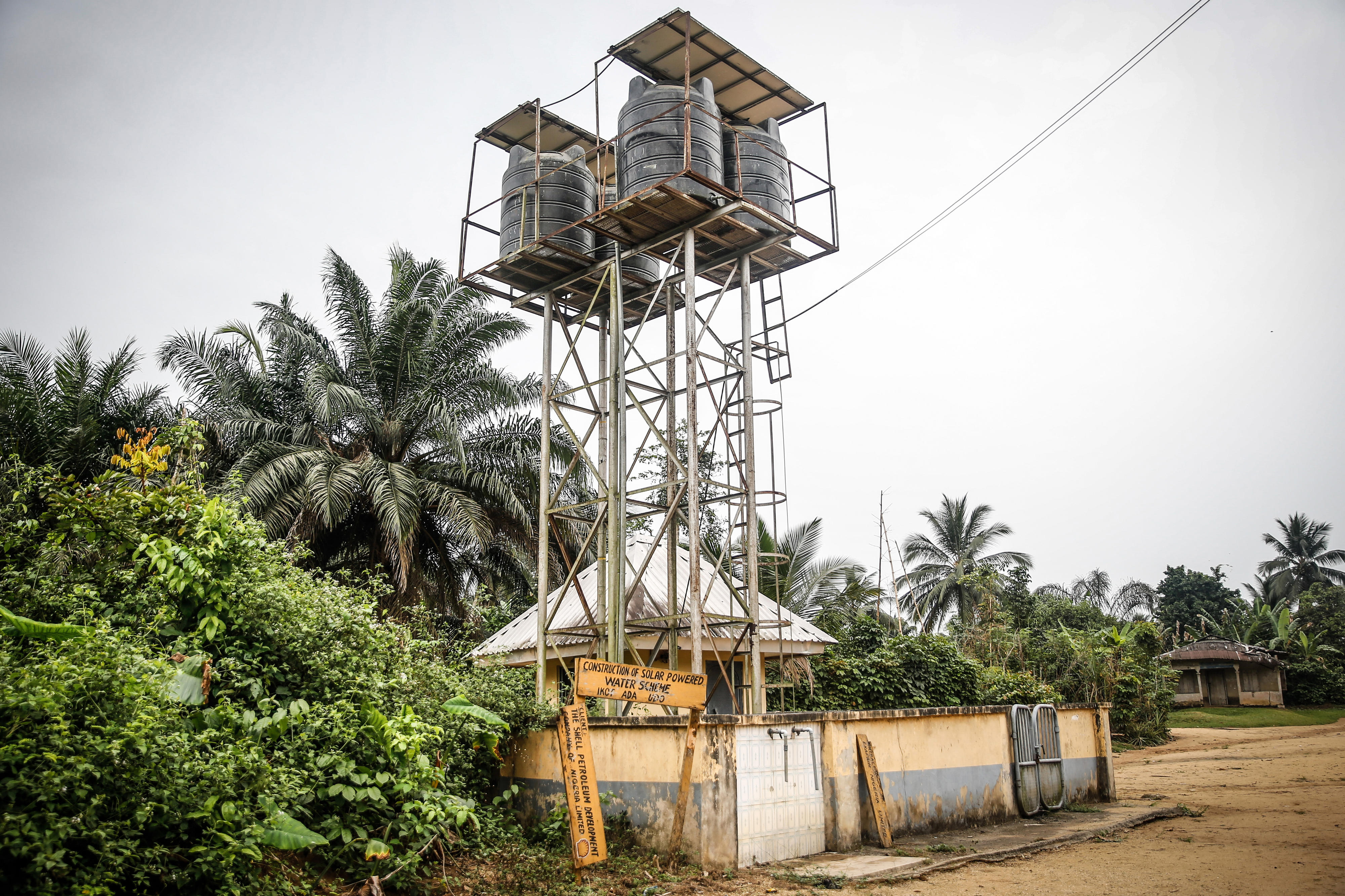Core area “Climate and energy, Just Transition” Supporting the energy transition
Solar-powered water reservoir in Ikot Ada Udo in the Niger delta
Germany is assisting the Nigerian government in improving the power supply, fostering investment in renewable energy and ensuring a socially just transition to a climate-compatible economy. Among other things, an interactive database is being set up for Nigeria's energy market. It will provide public authorities with data for the planning and monitoring of services. By making data publicly available, the database is hoped to mobilise private investment.
In addition to providing support for feeding solar power into the public grid, the German Development Ministry (BMZ) is also assisting Nigeria in its efforts to establish a decentralised power supply in remote rural regions. Environmentally friendly power is already being provided for nearly 39,000 people in about 8,000 households through 21 village mini-grids.
KfW Development Bank has set up a “green” credit line to enable small enterprises to buy energy-efficient machinery and switch to electricity from renewable sources. KfW is also going to contribute to a fund to help finance public and private projects for the expansion of renewable energy generation, the reduction of greenhouse gas emissions from businesses, government facilities and private households, and the expansion of vocational training programmes in this sector.
As at: 02/02/2024
